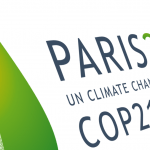The World Humanitarian Summit (WHS) is taking place on the 23rd and 24th May 2016 in Istanbul. This is the first ever global summit to focus on humanitarian action. Taking place at a time when 125 million people in 37 countries around the world are seriously affected by humanitarian crises [1] this summit could not be more relevant.
The summit provides an opportunity to identify solutions to reshape the humanitarian system so that it can more efficiently address the growing humanitarian needs. We hope that the summit will help to build a more inclusive and diverse humanitarian system, ready to meet the new challenges faced now, to serve people in need more effectively, and be prepared for the challenges of the future.
The three main goals of the summit are to:
- To re-inspire and reinvigorate our commitment to humanity and to the universality of humanitarian principles.
- To initiate a set of concrete actions and commitments aimed at enabling countries and communities to better prepare for and respond to crises, and be more resilient to shocks.
- To share innovations and best practices that can help to save lives around the world, put affected people at the centre of humanitarian action, and alleviate suffering. [2]
Ban Ki Moon’s report released last month: ‘One Humanity Shared Responsibility’ highlights critical areas of focus for the World Humanitarian Summit. Click here to see the interactive version, or here for the full report.
The four broad themes for the summit are:
- Humanitarian effectiveness
- Reducing vulnerability and managing risk
- Transformation through innovation
- Serving the needs of people in conflict
The basis of the current humanitarian system was established in 1991 (Resolution 46/182) by the UN General Assembly. Since then humanitarian needs have increased in scope and diversity and the environment in which it is delivered has grown more complex. This motivated UNSG Ban Ki-Moon to organised the World Humanitarian Summit (WHS) as part of his five-year action agenda announced in December 2012.
The Summit in Istanbul will endorse a document setting the working agenda for beyond 2016. It is hoped that the commitments will be translated into concrete action by all key stakeholders after the summit.
This summit is the culmination of a global consultation process. Different regional, and then a global consultation have already taken place. EU-CORD were involved in this process and Daniel Zetterlund from IAS represented EU-CORD at the global consultation, and Jim Ingram from Medair also attended the global consultation.
The EU-CORD Humanitarian Advocacy Task Group are working on advocacy in the run up to the summit.
The three priorities for EU-CORD at the WHS are:
- Disability-Inclusive Humanitarian Action
- The Role of Faith-Based Organisations in Humanitarian Action
- Humanitarian Principles
EU-CORD are also being featured in the publication “Together We Stand” which is a co-publication between UNOCHA and Tudor Rose specifically for the WHS. The EU-CORD contribution emphasises the need for inclusive forms of resilience programming, so that groups who would otherwise be excluded can benefit from humanitarian assistance.
The work that EU-CORD is doing for the WHS and these three priorities will be discussed more in future articles that will be posted in the coming weeks leading up to the summit in May.
For more information on the summit, including details on the roundtables that will be held, see the WHS website.
Image credit: OCHA Afghanistan





